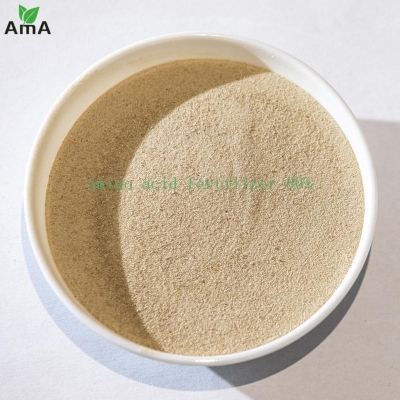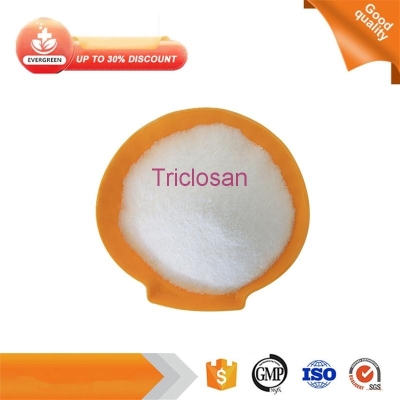-
Categories
-
Pharmaceutical Intermediates
-
Active Pharmaceutical Ingredients
-
Food Additives
- Industrial Coatings
- Agrochemicals
- Dyes and Pigments
- Surfactant
- Flavors and Fragrances
- Chemical Reagents
- Catalyst and Auxiliary
- Natural Products
- Inorganic Chemistry
-
Organic Chemistry
-
Biochemical Engineering
- Analytical Chemistry
- Cosmetic Ingredient
-
Pharmaceutical Intermediates
Promotion
ECHEMI Mall
Wholesale
Weekly Price
Exhibition
News
-
Trade Service
Hepatitis B virus (HBV) infection is the most common severe liver infection in the world.
the World Health Organization (WHO) estimates that there are more than 290 million people with chronic hepatitis B worldwide.
it kills more than 800,000 patients each year.
in China, nearly 100 million people have been infected with HBV, including more than 28 million people with chronic hepatitis B.
HBV infection is the leading cause of liver cancer, which is the second leading cause of cancer death in the world.
: 123RF Current antiviral therapy can inhibit HBV replication, but patients need to take it for life.
and these therapies have not been able to inhibit the expression of hepatitis B antigens such as HBsAg.
the expression of these viral proteins still affects the patient's immune system function, making it impossible to effectively remove hepatitis B virus, but also lead to cell necrosis and inflammation, which can lead to cirrhosis of the liver.
Effectively reduce the surface antigen of hepatitis B, restore the body's immune system function, so that patients do not need long-term medication, can rely on the body's immune system to control hepatitis B virus, is the goal pursued by hepatitis B treatment, this is what we often hear "functional cure".
today, at the European Association for the Study of the Liver (EASL) liver conference online, companies announced the results of their latest clinical trials of the therapies.
It is gratifying to note that a number of innovative treatments targeting HBV RNA have shown significantly reduced the efficacy of hepatitis B surface antigens in patients with chronic hepatitis B, and some therapies have been able to maintain hepatitis B surface antigens at low levels for nearly a year after suspension.
these results offer hope for an early "functional cure" of hepatitis B.
let's take a look at the performance of companies in innovative therapies.
RNAi therapy JNJ-3989 (formerly ARO-HBV), developed jointly by Jansen/Arrowhead Arrowhead Pharmaceuticals and Jansen, is an RNAi therapy specific to the liver delivered by subsoil injections.
today, researchers announced positive results in Phase 2 clinical trials in patients with chronic hepatitis B, in combination with a nucleotide (acid) analogue (NA) antiviral therapy.
, JNJ-3899 continued to significantly reduce HBV RNA levels in patients, as well as other hepatitis B antigen levels, including HBeAg and HBcrAg.
these clinical data support the further extension of JNJ-3989's time associated with NA antiviral therapy in order to achieve the goal of "functional cure" in patients with chronic hepatitis B.
in this clinical trial, patients with chronic hepatitis B (85 percent of whom were Asian) received three JNJ-3989 injections over a 28-day interval while taking NA antiviral therapy.
then they stopped RNAi therapy and only took NA antiviral therapy.
results showed that 97.5% of patients had lower levels of hepatitis B surface antigens by more than 1 exponential unit (1 log10) after receiving RNAi therapy.
, 15 of the 38 patients who responded maintained HBV antigen levels above baseline levels of more than 1 log10 at 392 days after treatment.
levels of hepatitis B surface antigens decreased by about 2 log10 on average in these patients.
JNJ-3899 can consistently reduce HBSAg levels in patients with chronic hepatitis B (syringe markers indicate RNAi therapy dosing time, Picture: Arrowhead)Glaxo Shke/Ionis GlaxoSmithKline today announced positive results from its Phase 2a clinical trial of THEO therapy GSK'836 (formerly known as IONIS-HBVRX) developed in cooperation with Ionis Pharmaceuticals.
In this trial, patients with chronic hepatitis B received a four-week ASO course of treatment followed by NA antiviral therapy after the course ended, and the researchers followed them for six months to see if ASO therapy could consistently significantly reduce the surface antigen levels of hepatitis B and the DNA levels of hepatitis B virus.
the results of this published trial are patient data at the end of the ASO course.
Ionis Antonytherapy Illustration (Photo: Ionis official website) Trial results showed that in patients treated with GSK'836 at a dose of 300 mg, levels of hepatitis B surface antigens decreased in the group of patients who had previously received NA treatment and who had not received NA treatment.
in four patients who had received NA treatment, patients who received ASO therapy had a 2.51 log10 lower level of surface antigens for hepatitis B than for placebo.
three of the patients had a reduction of more than 3 log10.
in 12 patients who had not received NA treatment, the level of surface antigens of hepatitis B decreased by 1.56 log10 (p-0.001).
three of the patients had a reduction of more than 3 log10.
HBV DNA levels decreased by an average of 1.66 log10 (p pooled data from two patient groups, with a total of 4 patients having their hepatitis B surface antigen levels reduced below detection sensitivity at the end of the 4-week course).
, the level of hepatitis B surface antigens continued to decrease in one patient who had not received NA treatment and one patient who had been treated with NA (up to 126 days after follow-up).
GSK is expected to begin Phase 2b clinical trials by the end of this year.
VIR-2218, developed in collaboration with Vir Biotechnology/Alnylam Vir Biotechnology and Alnylam, is a RNAi drug that is injected under the skin and targets liver delivery.
inhibits the expression of hepatitis B surface antigens that integrate DNA and cccDNA mediated.
According to the EASL Liver Conference Summary, in the ongoing Phase 2 clinical trial of 24 patients with chronic hepatitis B, the levels of hepatitis B surface antigens in some patients treated with a dose of VIR-2218 at a dose of 50 mg were 1.5 log10 lower than the baseline at 12 weeks of treatment.
in this group of patients, the level of hepatitis B surface antigen at 28 weeks of treatment was still 1 log10 lower than the baseline.
group treated with other doses of VIR-2281 also showed a significant decrease in levels of surface antigens for hepatitis B. earlier this month, Roche/Dicerna also reported positive results in Phase 1 clinical trials of ASO therapy targeting hepatitis B virus RNA, which was developed in collaboration with the company,
-VIR-2218 significantly reduced the level of surface antigens in patients with hepatitis B (black arrows indicate RNAi therapy dosing time, pictured: EASL.com).
preliminary data from these studies show that both RNA using RNAi and ASO therapy targeting HBV can effectively reduce the level of antigens on the surface of hepatitis B and show good safety and tolerance.
we wish these innovations in the clinical development of research therapies smoothly, as soon as possible for patients with chronic hepatitis B to bring "functional cure" therapy.
.







